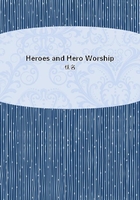
第19章
These Arabs Mahomet was born among are certainly a notable people. Their country itself is notable; the fit habitation for such a race. Savage inaccessible rock-mountains, great grim deserts, alternating with beautiful strips of verdure: wherever water is, there is greenness, beauty;odoriferous balm-shrubs, date-trees, frankincense-trees. Consider that wide waste horizon of sand, empty, silent, like a sand-sea, dividing habitable place from habitable. You are all alone there, left alone with the Universe; by day a fierce sun blazing down on it with intolerable radiance; by night the great deep Heaven with its stars. Such a country is fit for a swift-handed, deep-hearted race of men. There is something most agile, active, and yet most meditative, enthusiastic in the Arab character.
The Persians are called the French of the East; we will call the Arabs Oriental Italians. A gifted noble people; a people of wild strong feelings, and of iron restraint over these: the characteristic of noble-mindedness, of genius. The wild Bedouin welcomes the stranger to his tent, as one having right to all that is there; were it his worst enemy, he will slay his foal to treat him, will serve him with sacred hospitality for three days, will set him fairly on his way;--and then, by another law as sacred, kill him if he can. In words too as in action. They are not a loquacious people, taciturn rather; but eloquent, gifted when they do speak. An earnest, truthful kind of men. They are, as we know, of Jewish kindred: but with that deadly terrible earnestness of the Jews they seem to combine something graceful, brilliant, which is not Jewish. They had "Poetic contests" among them before the time of Mahomet. Sale says, at Ocadh, in the South of Arabia, there were yearly fairs, and there, when the merchandising was done, Poets sang for prizes:--the wild people gathered to hear that.
One Jewish quality these Arabs manifest; the outcome of many or of all high qualities: what we may call religiosity. From of old they had been zealous worshippers, according to their light. They worshipped the stars, as Sabeans; worshipped many natural objects,--recognized them as symbols, immediate manifestations, of the Maker of Nature. It was wrong; and yet not wholly wrong. All God's works are still in a sense symbols of God. Do we not, as I urged, still account it a merit to recognize a certain inexhaustible significance, "poetic beauty" as we name it, in all natural objects whatsoever? A man is a poet, and honored, for doing that, and speaking or singing it,--a kind of diluted worship. They had many Prophets, these Arabs; Teachers each to his tribe, each according to the light he had. But indeed, have we not from of old the noblest of proofs, still palpable to every one of us, of what devoutness and noble-mindedness had dwelt in these rustic thoughtful peoples? Biblical critics seem agreed that our own _Book of Job_ was written in that region of the world. I call that, apart from all theories about it, one of the grandest things ever written with pen. One feels, indeed, as if it were not Hebrew; such a noble universality, different from noble patriotism or sectarianism, reigns in it. A noble Book; all men's Book! It is our first, oldest statement of the never-ending Problem,--man's destiny, and God's ways with him here in this earth. And all in such free flowing outlines; grand in its sincerity, in its simplicity; in its epic melody, and repose of reconcilement. There is the seeing eye, the mildly understanding heart. So _true_ every way;true eyesight and vision for all things; material things no less than spiritual: the Horse,--"hast thou clothed his neck with _thunder_?"--he "_laughs_ at the shaking of the spear!" Such living likenesses were never since drawn. Sublime sorrow, sublime reconciliation; oldest choral melody as of the heart of mankind;--so soft, and great; as the summer midnight, as the world with its seas and stars! There is nothing written, I think, in the Bible or out of it, of equal literary merit.--To the idolatrous Arabs one of the most ancient universal objects of worship was that Black Stone, still kept in the building called Caabah, at Mecca. Diodorus Siculus mentions this Caabah in a way not to be mistaken, as the oldest, most honored temple in his time; that is, some half-century before our Era. Silvestre de Sacy says there is some likelihood that the Black Stone is an aerolite. In that case, some man might _see_ it fall out of Heaven! It stands now beside the Well Zemzem; the Caabah is built over both. A Well is in all places a beautiful affecting object, gushing out like life from the hard earth;--still more so in those hot dry countries, where it is the first condition of being. The Well Zemzem has its name from the bubbling sound of the waters, _zem-zem_; they think it is the Well which Hagar found with her little Ishmael in the wilderness: the aerolite and it have been sacred now, and had a Caabah over them, for thousands of years. A curious object, that Caabah! There it stands at this hour, in the black cloth-covering the Sultan sends it yearly; "twenty-seven cubits high;" with circuit, with double circuit of pillars, with festoon-rows of lamps and quaint ornaments: the lamps will be lighted again _this_night,--to glitter again under the stars. An authentic fragment of the oldest Past. It is the _Keblah_ of all Moslem: from Delhi all onwards to Morocco, the eyes of innumerable praying men are turned towards it, five times, this day and all days: one of the notablest centres in the Habitation of Men.